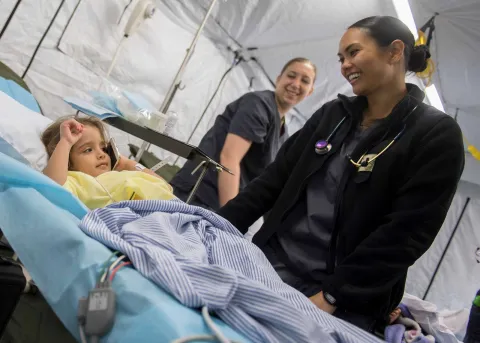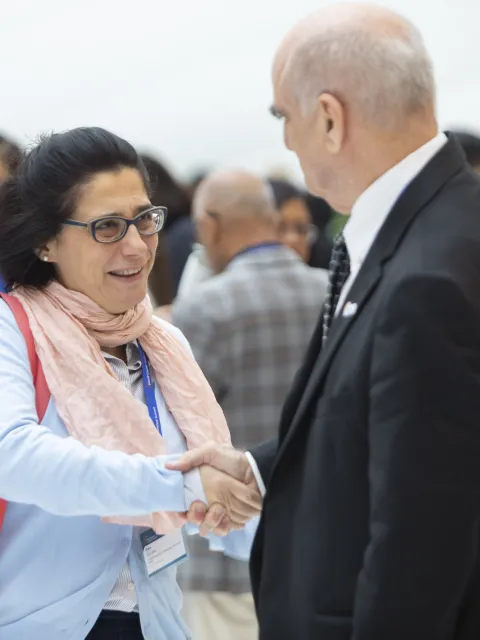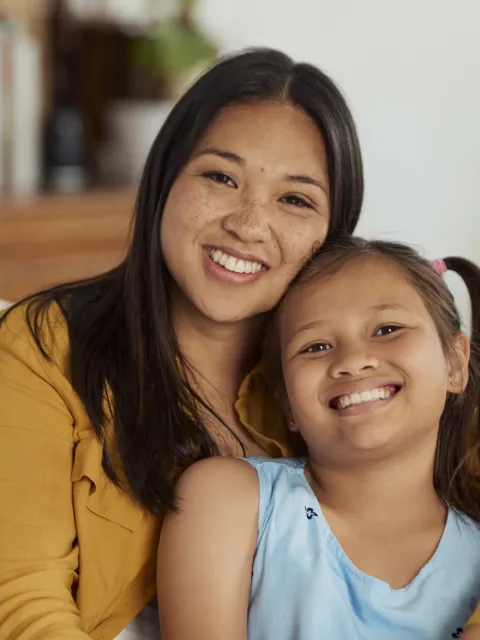Efforts to strengthen cancer care in Honduras undermined by volatile situation
The final article in UICC’s series on cancer care in zones of unrest sheds light on the fragile situation in Honduras where people are struggling to meet even basic needs amidst looming elections.

As in Lebanon, Yemen and Sudan, cancer organisations operating in Honduras amidst high tension and unrest face a similar dire lack of access to essential staff and even the most basic medicines. Every day is a struggle to find and allocate scarce resources and provide sufficient care and treatment to avoid unnecessary suffering and premature death.
Honduras has been roiled by civil upheaval, corruption, drug-related violence and natural disasters. The coronavirus pandemic has only exacerbated systemic weaknesses in health care and further fragmented the country's health system.
“The situation is far from what we need, which is universal access to manage not just cancer but the COVID-19 health crisis,” says Sandra Aquino, President of the Asociación de Pacientes con Cáncer Fe y Esperanza, a UICC member organisation that is part of the Cancer Advocates programme. She adds, however, that even with elections in November, no one seems willing to take on the problems the country is facing.
People are struggling to meet even basic needs such as food, according to Ms Aquino, and the tension, fear and violence – physical as well as psychological – are driving many to leave the country, causing a resource drain as in Yemen.
“The health infrastructure has always been insufficient and now further weakened by COVID-19, which has benefitted by expanding the black market and corruption. There is no guarantee for the prevention and care of chronic diseases. The mortality rate keeps rising.”
– Sandra Aquino, President of the Asociación de Pacientes con Cáncer Fe y Esperanza, Honduras
Only three major hospitals provide cancer care, one in the northern part of the country and two in the centre. This makes it challenging for anyone not living near one of these facilities to access care. There is little or no transportation, or the person requiring care lacks the funds to travel.
In terms of material and human resources, the country has only two radiotherapy machines and four oncologists who take of approximately 320 patients per week – when there are many more. “Sometimes it’s a situation of having to choose between a new patient and a follow-up case,” says Ms Aquino.
If a person living with cancer does manage to make it to the city and see a doctor, and receive a prescription, that person then faces a lack of medicine. “Or if this patient has been referred by their General Practitioner and it is the first time he or she is seeing an oncologist,” Ms Aquino adds, “they may not even come back for the next appointment in three or six months.”
Pursuing advocacy so that cancer is not forgotten
The Asociación de Pacientes con Cáncer Fe y Esperanza participated in March 2019 in a national health planning group, which included a set of reforms to implement an integrated system headed by the Ministry of Health to improve the public health system, build new facilities and train personnel. While the group was suspended due to COVID-19, the plan was ultimately completed and delivered to Congress, where, Ms Aquino says, it was substantially modified to the benefit of the private sector, no longer backed by civil society and health organisations, and has become a political item.
The Asociación has also approached authorities to ensure that patients in rural areas with symptoms are referred to an oncologist rather than an internal medicine resident, as is often the case currently, with the associated risk of misdiagnosis. In the meantime, the organisation pursues its work in trying to raise awareness among the population, so that people don’t only consult when they have symptoms but earlier. They also continue to conduct community outreach for cervical cancer with nurses and medical students, which has helped increase the number of timely diagnoses.
Finally, Ms Aquino says that a lot of work needs to be done on gathering reliable statistics and providing politicians with facts and figures to help move the dial. “We have to change their minds and inform them and make them understand that cancer is here, will always be here and we need to improve health facilities to deal with them.”
Read the other articles in the series on "Cancer in zones of unrest"
“The health infrastructure has always been insufficient and now further weakened by COVID-19, which has benefitted by expanding the black market and corruption. There is no guarantee for the prevention and care of chronic diseases. The mortality rate keeps rising.”
– Sandra Aquino, President of the Asociación de Pacientes con Cáncer Fe y Esperanza, Honduras
Last update
Tuesday 31 May 2022
